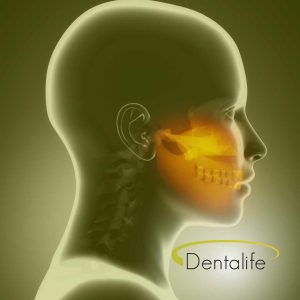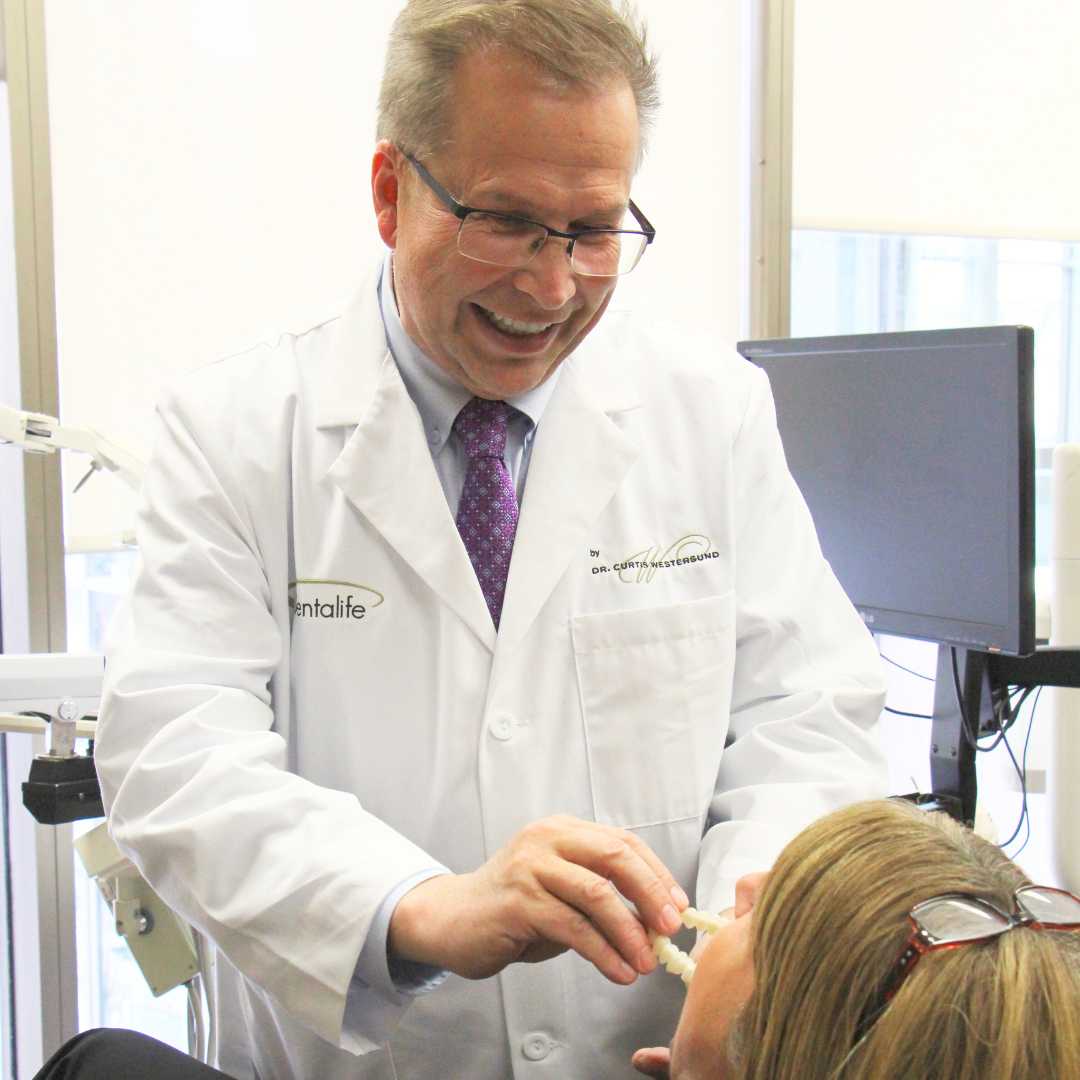You might not have even heard of TMJ, or Temporomandibular Joint Disorder, but it’s fairly common amongst people of all ages … from young too old. What causes TMJ in Calgary?
If you’re wondering why you suffer from a loss of jaw or neck function, migraines, headaches, jaw pain, neck pain, ear pain, facial pain, sinus pain, and more read on to find out some surprising causes of TMJ that may be contributing to your symptoms!
1) Accidents & Injury
Accidents and consequential injuries are a leading cause of jaw pain and can occur in a number of ways. A fall, a car accident, or a sports injury can all cause the TMJ to become damaged or at least affected. In some cases, the damage is minor and will heal on its own.
However, more severe cases may require medical intervention or specific dental treatment. Injuries to our body’s are more resistant to healing the longer we wait. So please, do not delay seeking an assessment.
2) Tooth Decay
One potential cause of TMJ damage can be tooth decay. When a tooth decays it (1) can be lost and thus creates a lack of balanced support for your jaw, or (2) needs to be heavily restored which may cause an unbalanced bite.
When the teeth are not balanced anymore, the TMJ becomes strained. This can lead to TMJ breakdown, painful TMJ inflammation, or a loss of TMJ mobility and function.
3) Gum Infections
An infection in your teeth or gums can cause jaw pain and other symptoms of TMJ. Teeth that lose their bony support due to gum disease will provide a “mushy support” to the TMJ. It is kind of like a house built in a bog or swamp.
This instability can lead to strain of the jaw muscles, TMJ, and connective tissue.
4) Genetics
Genetics may be a cause of TMJ. If your parents or grandparents had conditions that lead to TMJ problems, you may be more likely to have those problems too. Problems as simple as how you respond to the environment around you will affect your jaw growth and your TMJ function.
5) Daytime and Nighttime Airway as a child
TMJ problems can start from a very young age. If you are a nasal breather prior to the age of 10, your jaws will have a better chance to grow and support your health. The more of a mouth breather you are as a young child may stunt the growth of your upper jaw. This is due to the change in tongue position in a nasal breather and in a mouth breather. When you have to open your mouth to supplement your breathing your tongue changes position in your mouth and does not support proper upper jaw growth.
Sadly, after the age of 10, braces or orthodontics has less and less hope in changing this upper/lower jaw relationship. The outcome is often a strained TMJ as the lower jaw seeks a home with a small upper jaw.
6) Repetitive Actions
Repetitive actions are a common symptom of a TMJ problem. The most common repetitive action is bringing the lower front teeth forward to sit just below the upper front teeth. Your lower jaw simply slips forward to allow this end to end tooth position. Whenever your swallow, you bring your lower teeth up to your upper teeth to create a seal. It is kinda like biting a thread with your teeth.
But unfortunately, this action is very repetitive, all day long. This rubbing of the front teeth causes wear and tear on their thin, delicate edges. The front teeth chip and break and get shorter. It ruins many of a smile. We quite often see patients will keeping their tongues and cheeks between the back teeth like a big pink pillow. Also the patient can keep the lower jaw resting more forward. You may ask what causes the jaw to want to rub the front teeth together?
The most common cause is strain in the TMJ or a need to better open the airway at the back of the throat. By moving the lower jaw forward, it is easier to breathe. It turns out that breathing is kind of important. If you stop breathing you will die. These repetitive actions are so normal and so essential for so many people they do not even know they are doing it.
7) Stress and Anxiety
You may not know this, but stress and anxiety can add to pain in the TMJ. When you’re stressed, your jaw muscles often tighten up, which leads to muscle pain, inflammation, and discomfort. The damage to the jaw muscles can be reduced or managed without drugs or injections. Correcting a destructive clenching habit often only requires a balancing of jaw muscle forces.
8) Bruxism
Most people are familiar with the term bruxism, but may not know exactly what it is. Bruxism is the medical term for teeth grinding. It can occur during the day or at night. Many think that it is an expression of stress. While it may seem initially may like a minor issue, bruxism can actually lead to serious dental problems, including TMJ. Bruxism is a sign of a bite or jaw imbalance, and it can be a sign of nighttime airway issues that can greatly affect your life.
9) The Way Your Jaw Works
While most people worry about tooth decay and gum disease, they never think about how their teeth need to work. Teeth seem like they should be there for life. Straight and pearly white. But they wear out and fail simply due to the imbalance of the way they work, the way they must support health, and the forces they are put under. If you put tires on your car but did not have them balanced, they will wear out quicker.
If your teeth are imbalanced when meet and clack together they will breakdown faster than you want them too. Your teeth, your jaw, your TMJ, your muscles, and your body need to work in harmony to be able to last longer. Break up that harmony and parts fail. Many people with TMJ problems think it is only the jaw joint that is the problem. They are wrong. That TMJ is merely part of your whole body. A very active and important part, but only one piece of the puzzle that make up you. Have it checked. The TMJ’s health and function should be part of every dental exam.
Think you might have TMJ? Contact Dr. Westersund at Dentalife in Calgary
If you read any of these causes and symptoms and think they might be attributing to your jaw pain or loss of function, you should give our knowledgable staff at Dentalife in Calgary a call right away. TMJ problems often starts small and insignificant, but insignificant things accumulate to be big problems. Since your jaws and teeth are connected to the rest of your body, there can be a host of other symptoms and other problems that you wouldn’t expect.
We’ll be happy to answer any questions you might still have, or to help you book a TMJ Evaluation appointment in Calgary. Contact us today!




